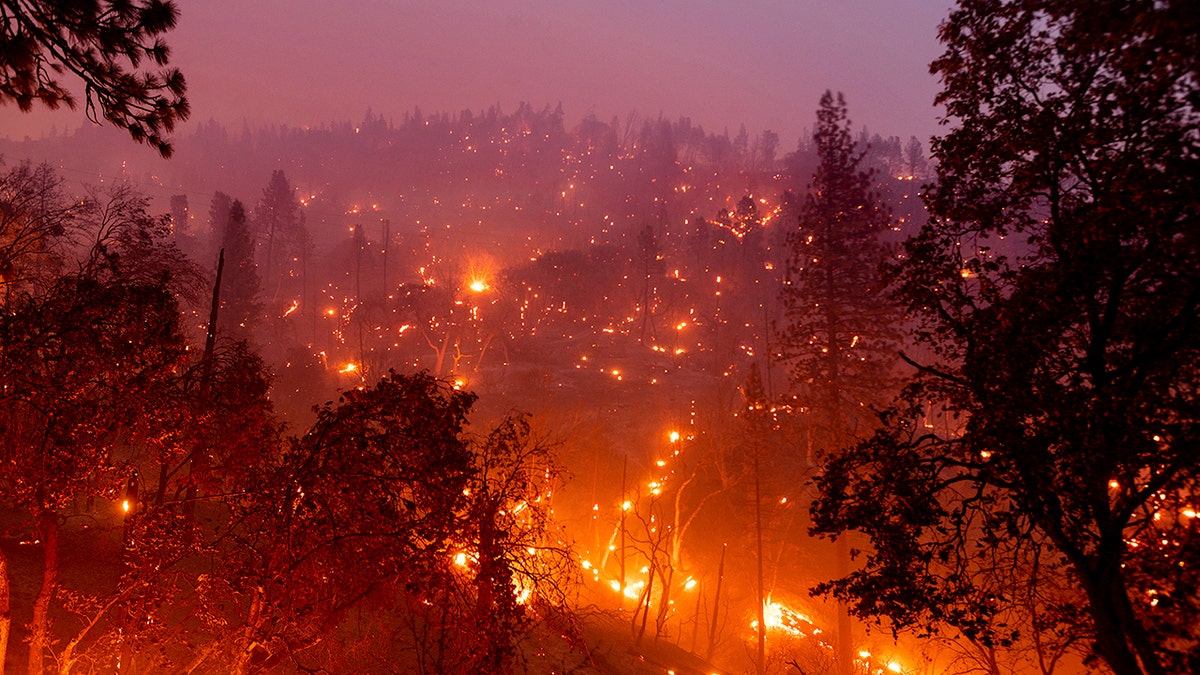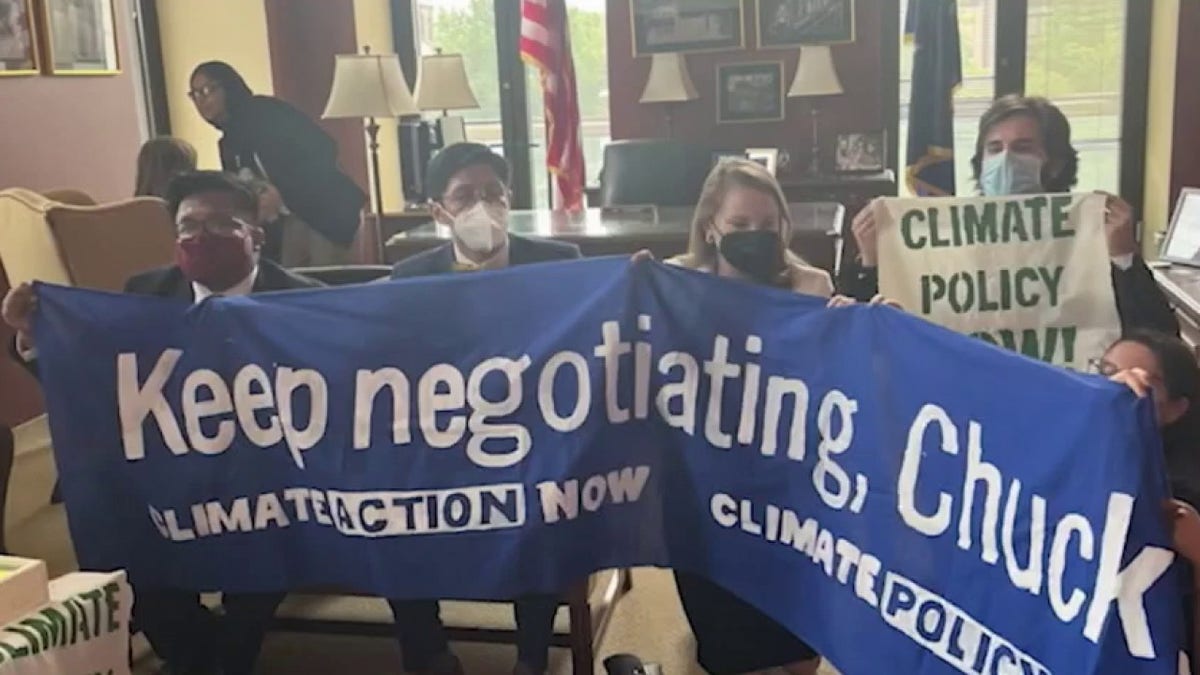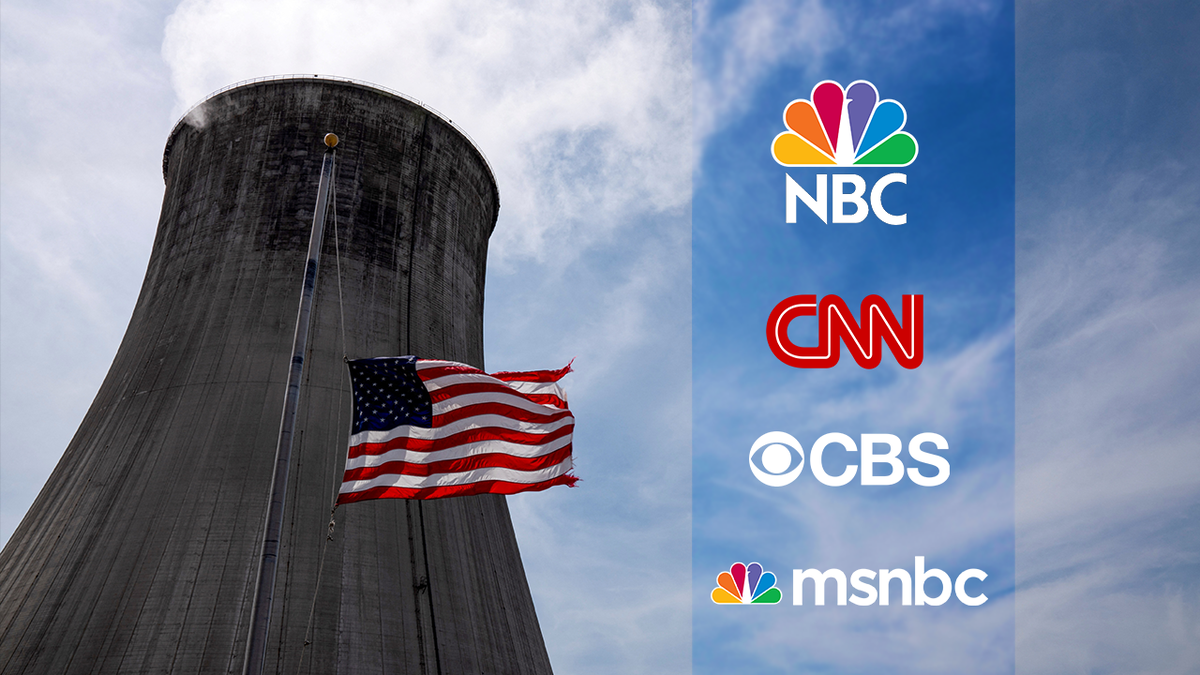Some schools go remote during heat wave in major cities
Fox News correspondent Mark Meredith reports on questions over COVID-19 relief spending in schools on 'The Story.'
Climate change has changed the weather from an innocent small talk topic to a "dead serious" political issue, a Washington Post story claimed on Saturday.
Reporter Roxanne Roberts wrote a Lifestyle piece that argued discussing the weather, usually a common work or party icebreaker, has now become a political "land mine" as climate change has taken hold of the country.
"But what used to be the smallest of small talk is now big: big issue, big problems, big opinions. It’s climate, not just weather, and it encompasses historic heat, flooding, drought, wildfires and storms — all looming in the daily news and on our social media feeds. It’s freaking some people out, ticking some people off and turning what was a safe subject into a hidden land mine. Weather is the newest topic — along with politics, religion and sex — to avoid at those awkward Thanksgiving dinners," she wrote.

Climate change activists have warned that humanity has less than seven years to stop global warming before it's too late. (Noah Berger/AP)
Speaking with several people including Weather Channel meteorologist Stephanie Abrams, Roberts claimed that while some have approached the topic carefully, openly discussing the topic may lead to an opportunity for climate change activism.
"But some do not go gently into that good night. As the political becomes increasingly personal, the line where polite conversation stops and activism starts has blurred," Roberts wrote.
She cited Margaret Klein Salamon, the executive director of the Climate Emergency Fund, as an example for those who spend their time educating themselves and others even in casual settings.

Several House Democrat staffers protest climate change in Rep. Chuck Schumer's office. (Fox News)
"For Salamon, who trained as a clinical psychologist, that means explaining to baby boomers how climate change will hurt their children and grandchildren. It means warning people who live in areas less affected that no place is immune. It means telling people that climate is a real issue, even on those gorgeous spring and fall days, or that the planet is warming despite that huge snowstorm in the winter. It means reassuring her peers that their anger and anxiety are both appropriate and that they shouldn’t be afraid to share their concerns," she described.
Further on, Roberts suggested that civility is no longer a priority when discussing things such as climate change.
"Something shifted in Washington over the past few years: A city devoted to the idea of bipartisan civility and engagement got rude. Protesters have always gathered on the National Mall or in front of the Supreme Court; now they swarm into restaurants to confront officials and show up outside their homes. Establishment dinner party conversations escalated into tense confrontations; partisan A-listers were shunned at elite parties. Some things, explained social power brokers, are more important than civility," Roberts wrote.

Media outlets have frequently promoted climate change policies and activism in the past. (REUTERS/Dane Rhys/File Photo)
CLICK HERE TO GET THE FOX NEWS APP
She concluded, "But etiquette has limits, and there’s value in protest, what the late Georgia congressman John Lewis called ‘good trouble.’ Are you going to change minds? Probably not right away, [etiquette expert Daniel Post] Senning says. Will some people think it’s rude? Yes, but that’s the point."









































